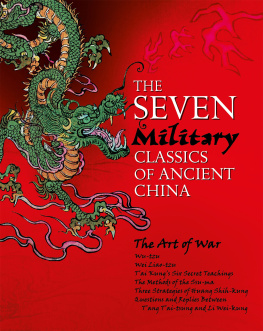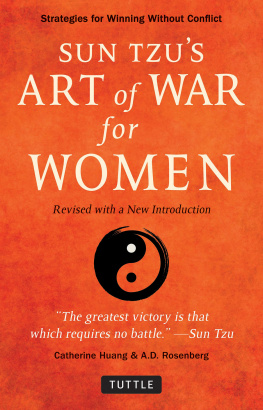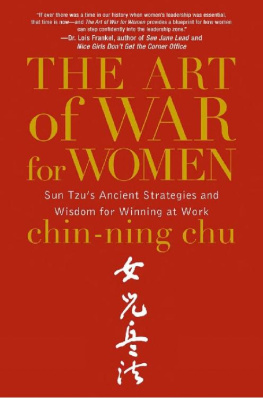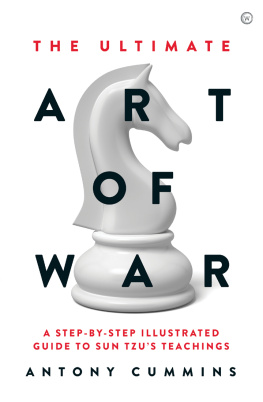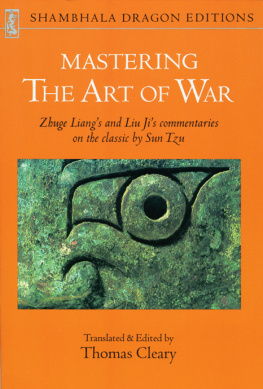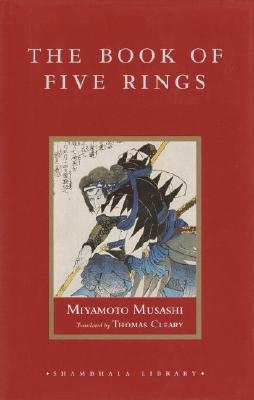STERLING, the distinctive Sterling logo, STERLING INNOVATION,
and the Sterling Innovation logo are registered trademarks of
Sterling Publishing Co., Inc.
Library of Congress Cataloging-in-Publication Data Available
10 9 8 7 6 5 4 3
Published in 2007 by Sterling Publishing Company, Inc.
387 Park Avenue South, New York, N.Y. 10016
2000, 1987 by General Tao Hanzhang
Distributed in Canada by Sterling Publishing
c/o Canadian Manda Group, 165 Dufferin Street,
Toronto, Ontario, Canada M6K 3H6
Distributed in the United Kingdom by GMC Distribution Services,
Castle Place, 166 High Street, Lewes, East Sussex, England BN7 1XU
Distributed in Australia by Capricorn Link (Australia) Pty. Ltd.
P.O. Box 704, Windsor, NSW 2756, Australia
Manufactured in China
All rights reserved
Sterling ISBN 978-1-4027-4552-2
For information about custom editions, special sales,
premium and corporate purchases, please contact Sterling Special Sales
Department at 800-805-5489 or specialsales@sterlingpuB.Com
Interior Design: Leah Lococo Ltd
Interior Illustrations: Monica Gurevich
S un Tzus Art of War is a classical work on military affairs written approximately twenty-four hundred years ago. Although it is a military work, it is not confined to military affairs. Much of the text is also devoted to relationships between warfare and politics, economics, diplomacy, geography, and astronomy. It is, therefore, not surprising that Sun Tzus Art of War is the only work of many written on the subject which has been handed down all through the ages, becoming popular abroad as well as in China.
The present book, Sun Tzus Art of War: The Modern Chinese Interpretation, was written by General Tao Hanzhang, a senior officer in the Chinese Peoples Liberation Army (PLA). Born in 1917 in Jiangxi Province, China, General Tao joined the Red Army in 1933 and took part in the world-famous, arduous Long March in 193435. He fought in numerous battles during the Anti-Japanese War as a regimental commander and chief of staff of a brigade. During the Chinese Liberation War, he was chief of staff of an army. Later, he was the provost in the North China Military and Political College. Since the founding of the Peoples Republic of China, he has held many important military posts, such as the chief of staff of Chinas Kwangzhou Military Zone. General Tao has been a military educator in the PLA for many years, giving lectures and holding leading posts in Chinas highest military educational institutionthe Chinese Military Academy.
Retired at the age of 68, General Tao serves as a senior adviser of the Beijing Institute for International Strategic Studies. He has visited the United States, Britain, France, and many other countries, lecturing on Chinese military thought and strategic problems. Out of the rich experiences of his military career, General Tao has published a number of works of theoretical and practical significance: Military Operations in Tropical Jungles, The Work of a Staff Officer, The Work of Headquarters in Modern Warfare, and several others.
In this book, his latest one, General Tao offers not only a vivid, clear, and analytical explanation of Sun Tzus thought on the art of war, but also makes penetrating comments on its values and its shortcomings with an expert eye. In historical perspective, he also takes into consideration the development of modern weapons and technology. Written largely from the perspective of a Chinese military man who has been engaged in wars for most of his life, the book provides a comprehensive framework for approaching modern as well as ancient Chinese military thought. General Tao has combined Sun Tzus Art of War with the theory of modern war. Considered in the light of present-day Chinese military theory, one finds both indications of change and aspects of continuity in this sphere.
General Taos book treats the difficult subject of military theory in a simple language that is easily accessible to those who are not experts in military affairs. I believe this book will not only make interesting and instructive reading for those engaged in military, political, or foreign affairs, but will also help individuals develop their ability to make judgments and to synthesize and make decisions.
There are some discrepancies and deletions in translation with regard to quotations from Sun Tzus Art of War, which appears in the Appendix, and General Taos work (Parts I and II). This is the result of my endeavor to find the most exact terms for the original ancient Chinese. However, these discrepancies are insignificant, and none of them alters the true meaning of the text.
My thanks are extended to my friend, Dr. Derick Wilde, who read part of the manuscript and gave very useful advice on points of language.
YUAN SHIBING, Associate Professor
Foreign Affairs College
Beijing, China
S un Tzus Art of War was written by Sun Tzu, the most famous military scientist and one of the ablest commanders in Ancient China. The exact dates of his birth and death are not known, but he lived around 500 B.C.; therefore, he was a contemporary of Confucius. According to Shi Ji: The Biography of Wu Zixu, Sun Tzu and his book of thirteen chapters on the art of war were recommended by General Wu Zixu to He Lu, the sovereign of the kingdom of Wu. Recognizing that Sun Tzu was very good at military affairs, He Lu appointed Sun Tzu a general in the kingdom.
The Art of War, written approximately 2,400 to 2,500 years ago, is the earliest and most complete book on the strategy of war available in China. The current book is somewhat different from what appears on the bamboo slips, the original Sun Tzus Art of War, that were excavated from the Yingue Mountains. These bamboo slips date from the early years of the West Han Dynasty, about 350 years after the end of the Spring and Autumn Period (770476 B.C.), which indicates three important points: 1) The time that Sun Tzus Art of War was thought to be written is correct; 2) It is indeed Sun Tzu who wrote the book and not, as has been suggested, the writings of someone else in his name and; 3) The discrepancies between the content of the present edition of Sun Tzus Art of War in circulation and what appears on the bamboo slips shows that this classic military work has been revised throughout different dynastiesnew ideas being incorporated from the notations made as various renowned marshals and generals studied the work.
Actually, scarcely any Chinese generals throughout the ages studied Sun Tzus Art of War without writing down their own comments and annotations. Famous among them are Sun Bin in the Warring States (475221 B.C.), Zhang Liang and Han Xin in the West Han Dynasty, Zhuge Liang and Cao Cao in the Period of the Three Kingdoms, Li Shiming and Li Jing in the Tang Dynasty, Yue Fei and Li Gang in the Song Dynasty, Yeluchucai in the Yuan Dynasty, Liu Boweng in the Ming Dynasty and Zhen Guofang in the Qin Dynasty. Some even contributed unique and original ideas.
A number of contemporary marshals and generals in the Peoples Liberation Army of China are known to have thoroughly studied Sun Tzus Art of War. Mao Zedong, for instance, praised the work highly, saying that Sun Tzus doctrine, Know the enemy and know yourself; in a hundred battles you will never be defeated, is scientifically true. Marshal Liu Bocheng studied Sun Tzus Art of War so thoroughly he could even recite it, and he applied the book with great flexibility and proficiency. He personally translated one of the chapters, Posture of Army, from classical to modern Chinese. Marshal Liu Bochengs manuscript is still kept in military archives.
Next page

